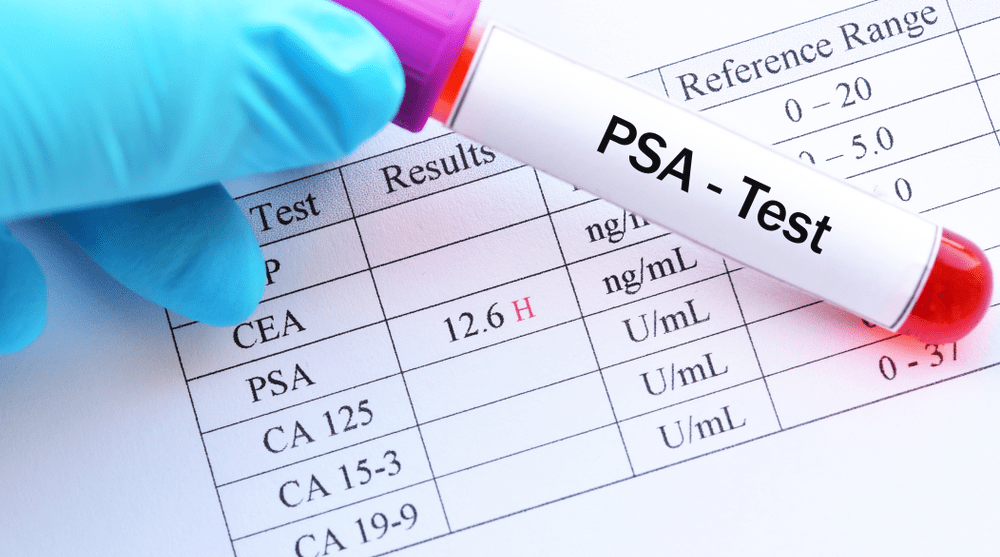When it comes to taking charge of your health, fellas, there’s no room for guessing games. One of the most important but often misunderstood tests for men is the PSA blood test. But what the heck is it, and why should you even care? Let’s break it down—no BS.
What is a PSA Blood Test?
The PSA (Prostate-Specific Antigen) blood test measures the level of PSA in your blood. PSA is a protein produced by the prostate gland, and while a little bit is normal, elevated levels can be a red flag. This test is one of the main ways doctors screen for prostate health issues, including prostate cancer, which is the most common cancer in Aussie men, with about 24,000 new cases every year (Prostate Cancer Foundation of Australia).
What is the PSA Test Used For?
PSA testing isn’t just for cancer detection. It’s like a health check-up for your prostate. Here’s what it’s used for:
1. Screening for Prostate Cancer
- The Big One: The PSA test is most famous for its role in early detection of prostate cancer. Catching cancer early means more treatment options and better outcomes. In Australia, prostate cancer is the second leading cause of cancer death in men, so early detection is a game-changer.
2. Monitoring Prostate Health
- Tracking Changes: Even if you’ve had prostate issues before, like an enlarged prostate (Benign Prostatic Hyperplasia or BPH) or prostatitis (inflammation), PSA tests help monitor changes over time. Regular testing helps your doc see if things are stable or if there’s something new to worry about.
3. Guiding Treatment Decisions
- Tailoring Your Treatment: For guys already diagnosed with prostate cancer, PSA tests help guide treatment. If you’re already on the path to fighting the big C, the PSA levels will tell you—and your doctor—if the treatment is working or if adjustments are needed.
How is the PSA Test Done?
Don’t sweat it—it’s just a blood test. You’ll have some blood drawn, usually from your arm, and that’s it. No fancy prep work, no fasting, just a quick visit. Results come back in a few days, and then you can plan your next move.
What Do PSA Levels Mean?
PSA levels are measured in nanograms per milliliter (ng/mL). Here’s a quick look at what your results might mean:
- 0-4 ng/mL: Generally considered normal, but PSA isn’t the only factor. Age, family history, and symptoms matter too.
- 4-10 ng/mL: The grey zone—might be normal, might not. Your doc may recommend more tests or keep an eye on it.
- Above 10 ng/mL: Time to chat with your doctor about the next steps because this is where the risk of cancer goes up.
The Controversy: To Test or Not to Test?
Look, PSA testing isn’t perfect. It’s a tool, not a crystal ball. Some argue that PSA tests lead to unnecessary treatments for slow-growing cancers that wouldn’t have caused problems in your lifetime. The Royal Australian College of General Practitioners suggests having a chat with your GP about the pros and cons of testing, especially if you’re over 50, or over 40 with a family history of prostate cancer (RACGP).
How Often Should You Get Tested?
If you’re in the target group—typically men aged 50-69—talk to your doctor about your risks. If you’re high-risk (like if Dad or Grandpa had prostate cancer), you might start earlier. Australian guidelines recommend individualised screening rather than a one-size-fits-all approach, which means the best schedule depends on your situation.
Wrapping It Up: Get Informed, Get Tested
PSA testing is about giving you the power to make informed choices about your health. No scare tactics here—just straight talk. Sure, the PSA test isn’t flawless, but it’s a valuable tool in your health arsenal. If something feels off or if you’re due for a check-up, don’t put it off. Get tested, get informed, and take control.
Feeling proactive? Visit trusted resources like the Prostate Cancer Foundation of Australia and Cancer Council Australia to read more about prostate health and PSA testing. Knowledge is power, fellas—don’t sit on it.
Got questions? Hit up your GP for the real deal. Your health is your wealth—time to own it.
Author Bio:
Brett, Project Manager & Health Writer
As a health writer and project manager, Brett blends on-the-ground experience with the latest scientific research and information. Known for his straightforward approach, Brett answers the questions you want to know and delivers easy-to-understand, actionable advice to help people stay informed and proactive.


